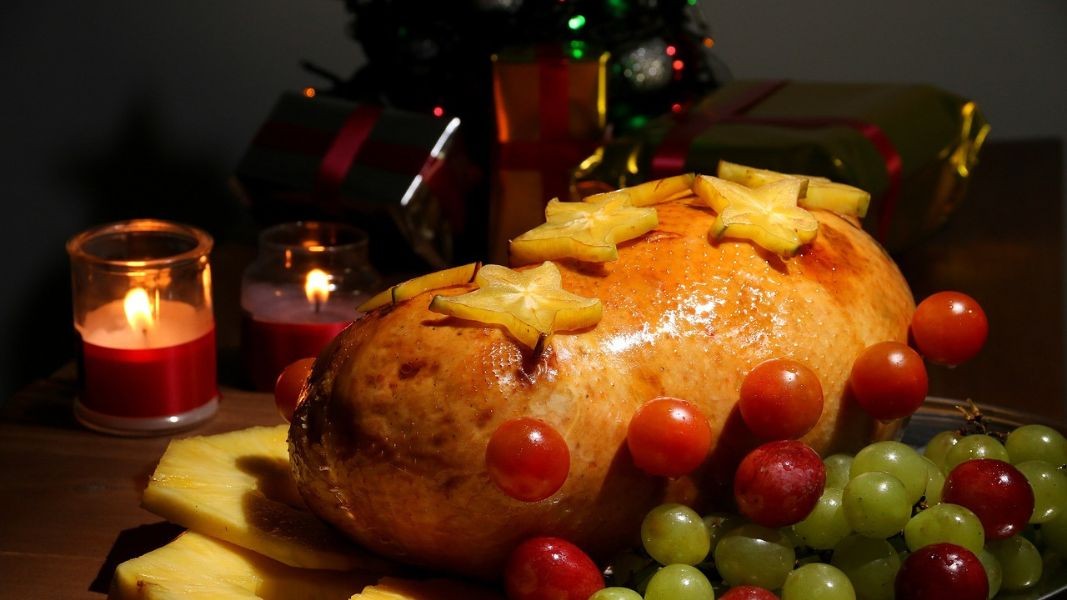In recent years, turkey has begun to find its place on the Bulgarian Christmas table. However, despite its health benefits and great taste, turkey is still not among the most preferred meats in Bulgaria.
"On the Bulgarian market we can buy mostly imported turkeys, as the production of turkey meat in Bulgaria has been constantly decreasing since 2012,” Ivaylo Galabov, chairman of the Union of Poultry Breeders in Bulgaria, says. “Over a period of 10 years, production has decreased almost 3 times: from 47,000 to 16,000 turkeys. Consumption is seasonal. These are turkeys that are sold mainly during the Christmas holidays and cannot satisfy consumption in Bulgaria."
The high price of fodder, which is imported from Argentina, Brazil and the USA, is also a problem. A huge share of the Bulgarian market is occupied by Romanian turkeys, which are bought at low prices, but are inferior in quality in comparison to local production, according to Galabov.
"Bulgarian turkeys are of exceptional quality, especially when they are offered chilled. Imported birds are mostly frozen, which impairs the nutritional quality. According to me, consumption of turkey meat in Bulgaria is among the lowest in Europe," he says.

Turkey meat producers in Bulgaria do not receive subsidies and the only compensation they get is for humane treatment of animals, which has no serious stimulating effect. At the same time, turkey farming is risky and requires serious investments for hatcheries, specialized equipment and buildings.
A farm in Stara Zagora is raising turkeys for meat despite all the difficulties in the sector.
"We have focused on Bulgarian turkeys, which have the genes of birds imported many years ago,” the doyen in turkey breeding in Bulgaria, Prof. Mitko Lalev, who has been engaged in scientific activity for 40 years, says. “Turkeys require high-protein mixtures from an early age, which increases the price of meat. Production of turkey meat worldwide has been declining. It is currently 5% of all poultry and continues to decline."
Bulgarian turkeys are raised with selected fodder and without the use of waste products. Prof. Lalev says that turkey is among the healthiest meats with high content of amino acids and other substances.
"The best-quality meat is from turkeys that are raised in pastures, but there are almost no such turkeys in Bulgaria anymore,” Prof. Mitko Lalev says. “The quality of the Bulgarian product depends mostly on the way turkeys are fed. In the final period, we exclude all components that are not useful for humans, while foreign producers stick to the intensive production method, trying to make the birds gain weight quickly."

Can turkey meat replace the traditional Bulgarian pork, especially at the Christmas and New Year's table?
"Bulgarians don't have the tradition of eating turkey. For Christmas, Bulgarians traditionally slaughter a pig, so pork will not be replaced in the future,” Prof. Lalev says and shares his tips for preparing the most delicious turkey: “Since a whole turkey requires a large oven and patience during preparation, I will recommend that the fillet is prepared in the form of breaded meat with cornflakes, sauces and spices. The drumsticks are usually cooked with cabbage or melted cheese and cream, and the neck and giblets can be used to make a delicious soup."
English: Alexander Markov
The making of knitted products is a traditional craft that deserves a revival and a new life, believes Alexandrina Pandurska, known for her numerous initiatives to popularize cultural and historical places in the Blagoevgrad region. According to her..
The village of Zmeyovo near the town of Stara Zagora is celebrating today, December 21, its traditional Festival of Pelin Wine. According to an old Bulgarian custom, guests will be welcomed with bread and salt on the square in front of the..
Each piece evokes warmth and nostalgia because each is handmade and unique. The silvery reflections on the glass baubles take us back to childhood, when winters were harsh and snow-white and Christmas decorations were made of wafer-thin glass . Nowadays,..

+359 2 9336 661
